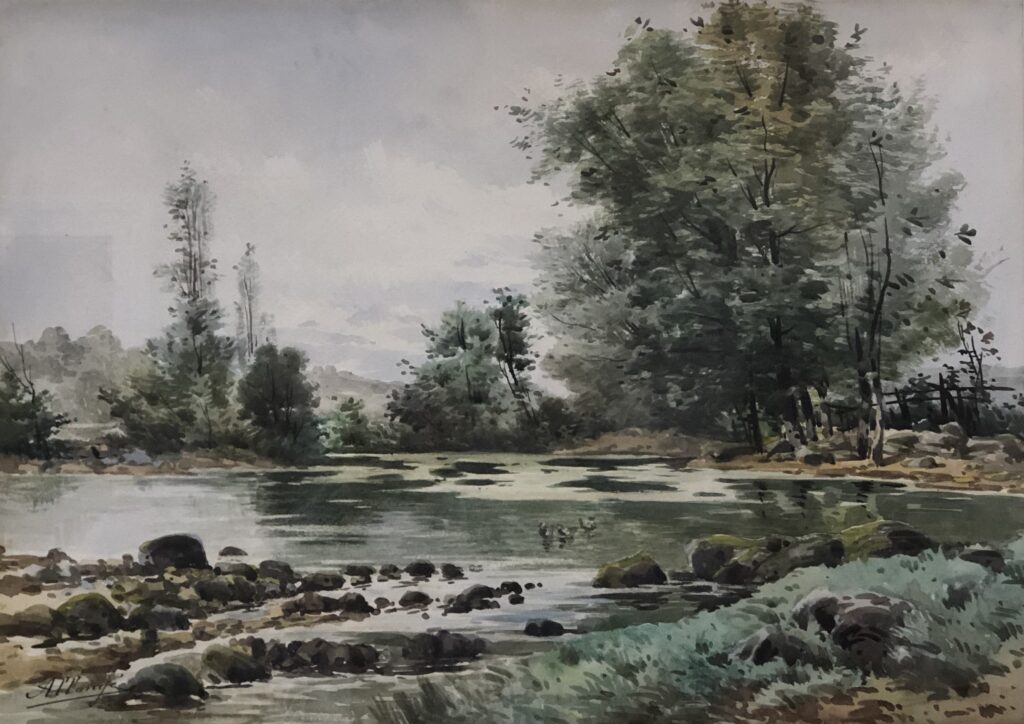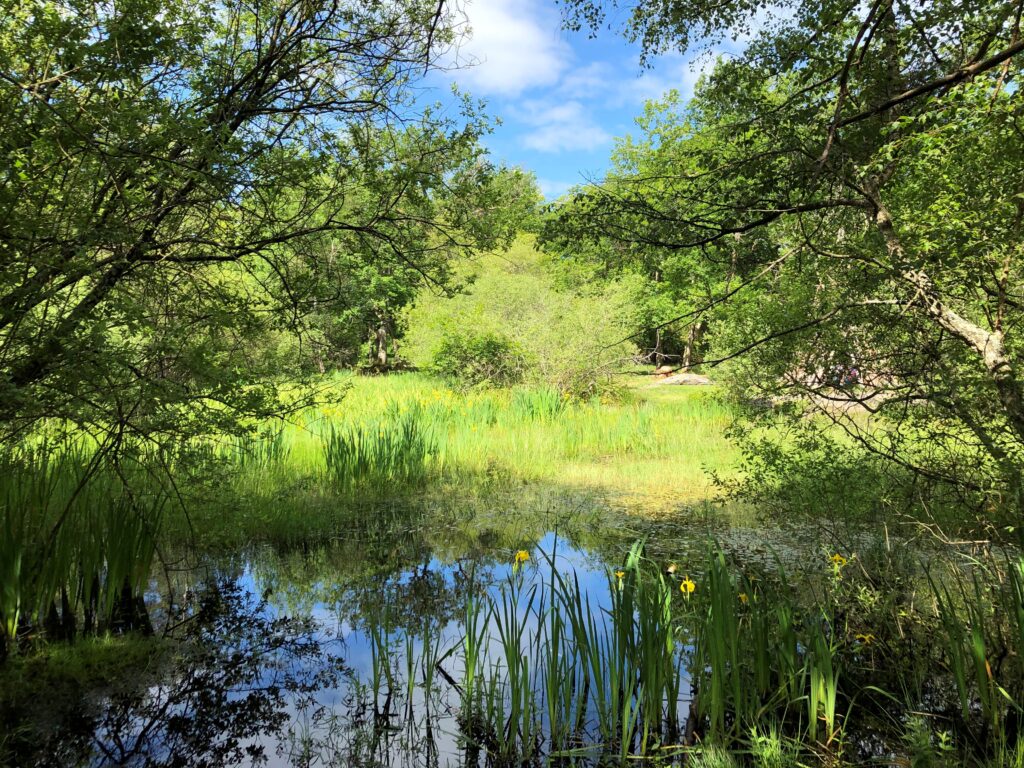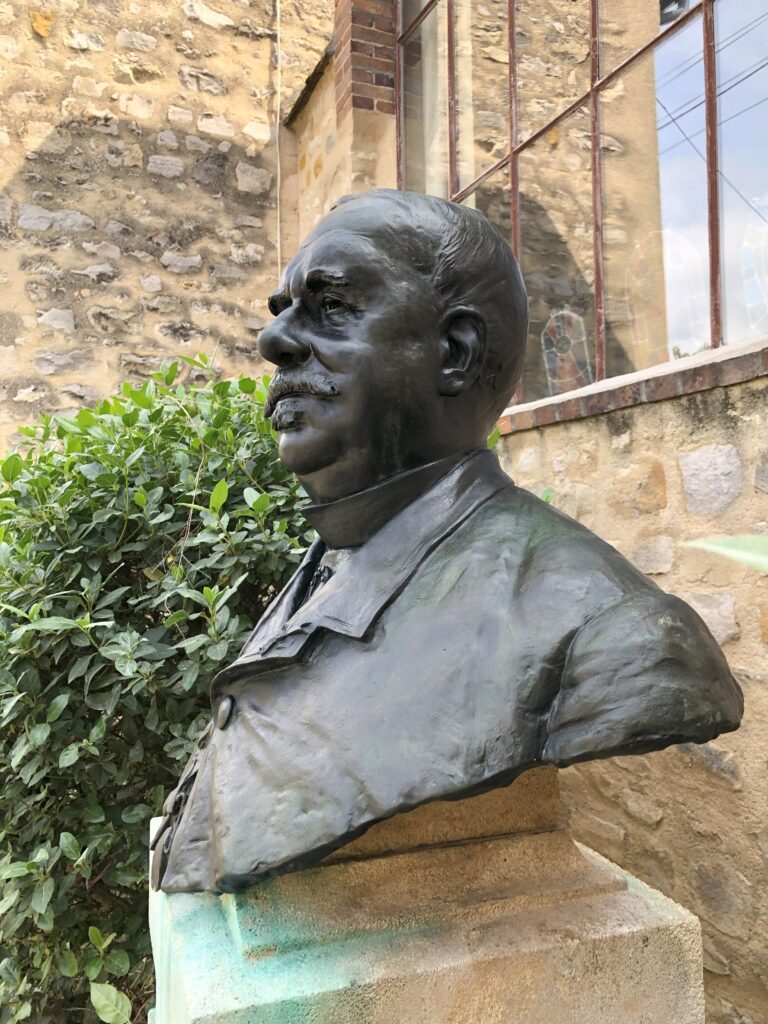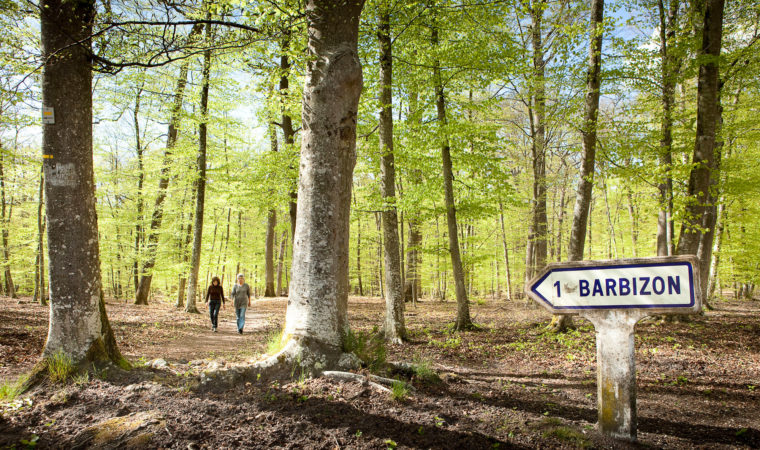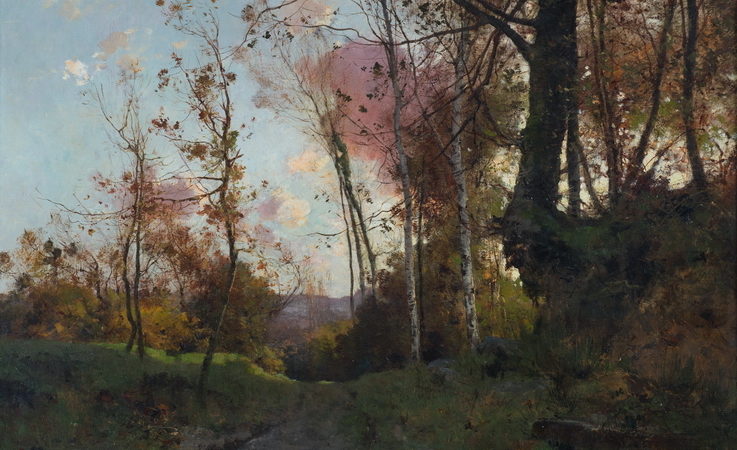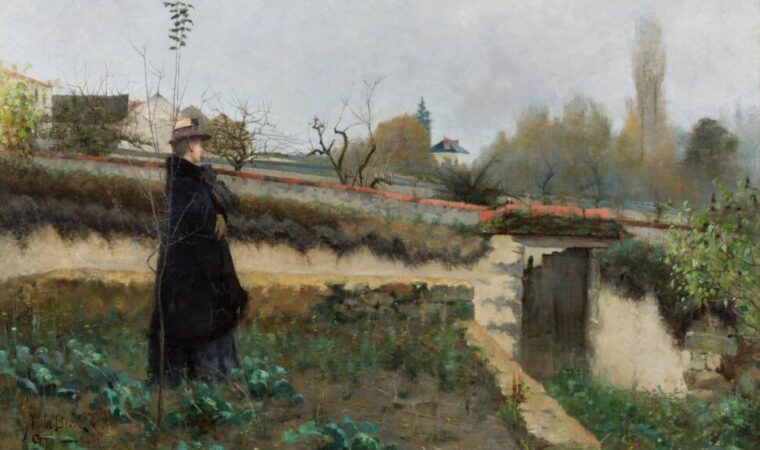Known since the neolithic times, Bourron mainly draws its fame from the intense artistic presence that marked the 19th century. Around 1830, Caruelle d’Aligny and Jean-Baptiste Corot, his friend, settle in Marlotte, then a hamlet of Bourron, where many artists from Barbizon visit them: Harpignies, Daubigny, Diaz de la Pena, Olivier de Penne, Celestin Nanteuil…
In 1850, Henri Murger has just published “Scenes of the Bohemian Life”, a novel later used by Puccini for his opera, when he discovers the thatched roofs of Marlotte and brings all his Parisian friends there, such as writers Théophile Gautier, Alfred and Paul de Musset, Théodore de Bainville…
From 1860, Sisley, Renoir, Monet, Cézanne, Pissarro, Bazille… join them. They all meet in the two village inns, the Saccault inn and the Antony inn, immortalized in Renoir’s famous painting, Mother Anthony’s tavern.
In their wake, other painters, less known today but who had a certain celebrity in their time, such as Auguste Allongé or Eugène Ciceri, Charles Delort, Jules Rigolot, Armand Charnay, Armand Point, acquired houses in the village after 1870. Some are buried in the Bourron-Marlotte cemetery.
Literary life remained just as intense, with the poet François Coppée, or the Margueritte brothers who settled in Marlotte, while the Goncourt brothers, Mallarmé, Oscar Wilde, Paul Fort and may others were regular visitors.
After 1914, the presence of painters somewhat faded and a more important place was taken by music, literature and cinema. The villa La Chansonnière, under the impetus of Magda Tagliaferro and Jules Boucherit became a temple of music frequented by famous artists: Alfred Cortot, Jacques Thibaud, Ginette Neveu, Denise Soriano, Ivry Gitlis, which led to writing that Marlotte was a “city of the violin”.
Cinema also played a major role during this period with Jean Renoir who shot his first film there and lived for nearly twenty years at Marlotte. Jacques Becker, his assistant, often came to Marlotte as well as Valentine Tessier and Eric von Stroheim.
